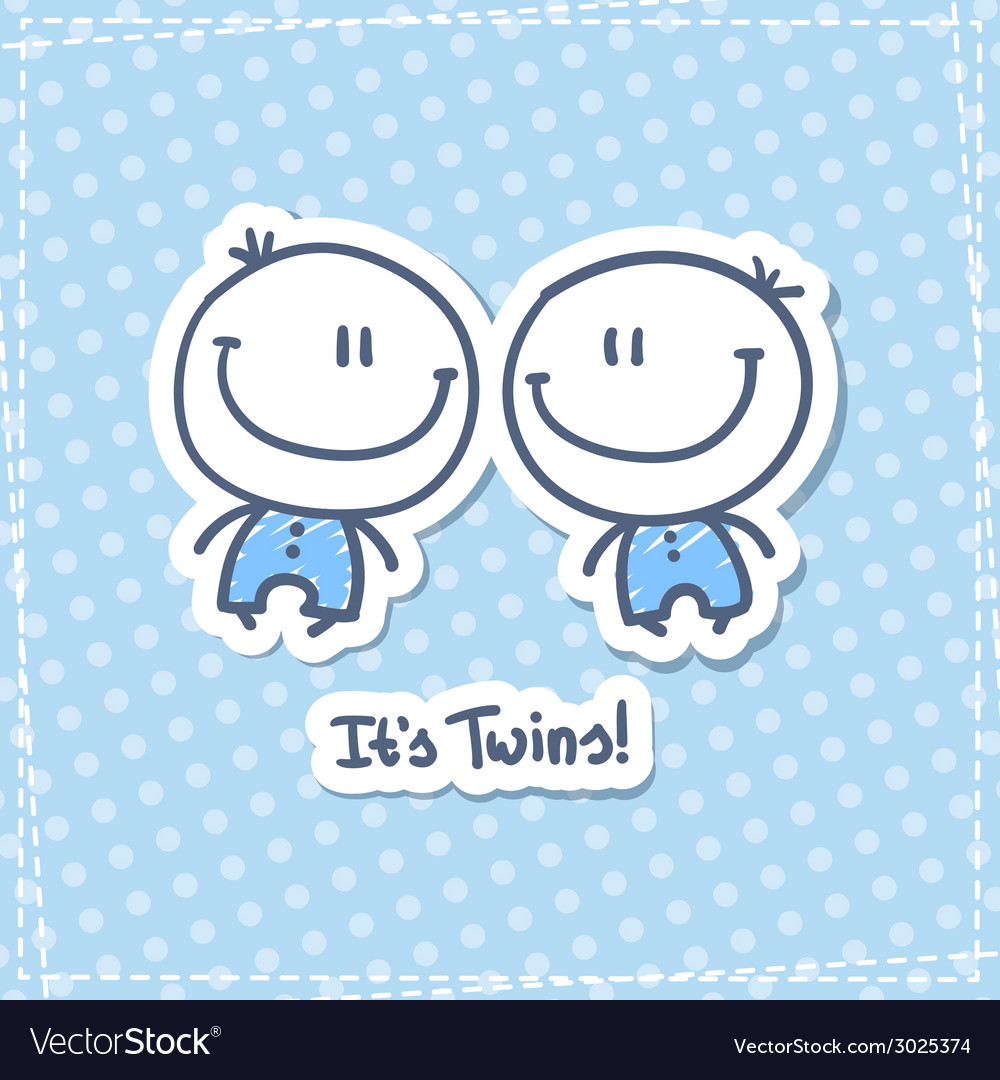When it comes to the phenomenon of its twins, there's much more to explore than meets the eye. Twins have fascinated humanity for centuries, sparking scientific curiosity, cultural significance, and emotional connections. Understanding the intricacies of twins and their unique bond can provide valuable insights into human biology, psychology, and relationships. In this article, we will delve deep into the world of its twins, uncovering facts, myths, and fascinating details.
Twins are not just a biological phenomenon; they represent a unique connection that transcends ordinary sibling relationships. The bond shared by twins often develops even before birth, creating a special relationship that continues throughout their lives. Whether identical or fraternal, twins have always been a subject of interest for researchers and the general public alike.
This article aims to provide a comprehensive overview of its twins, covering various aspects such as genetics, development, psychological implications, and cultural significance. By the end of this article, you'll have a deeper understanding of what it means to be a twin and the extraordinary experiences that come with it.
Read also:Layla Burns The Rising Star In The World Of Entertainment
Table of Contents
- Biography of Twins
- Types of Twins
- Genetics Behind Twins
- Development of Its Twins
- Psychological Aspects of Twins
- Health Considerations for Twins
- Cultural Significance of Twins
- Common Myths About Twins
- Famous Twins Around the World
- Conclusion
Biography of Twins
To better understand its twins, it's essential to explore their basic characteristics and background. Twins can be identical or fraternal, each with distinct features and shared traits. Below is a summary of key information about twins:
Basic Information
| Category | Details |
|---|---|
| Types | Identical (monozygotic) and Fraternal (dizygotic) |
| Frequency | Approximately 3 in every 100 births |
| Shared Traits | Genetic similarities, emotional bonds |
| Unique Aspects | Identical twins share the same DNA, while fraternal twins have separate genetic profiles |
Twins are born when two embryos develop from a single pregnancy. Identical twins occur when a fertilized egg splits into two, resulting in genetically identical individuals. Fraternal twins, on the other hand, develop from two separate eggs fertilized by two different sperm cells, making them as genetically distinct as regular siblings.
Types of Twins
Understanding the types of its twins is crucial for grasping the complexities of twinship. Twins can be categorized into two primary types:
- Identical Twins: These twins share the same DNA and often exhibit striking physical similarities.
- Fraternal Twins: These twins are genetically distinct and can be of the same or opposite sexes.
Subtypes of Twins
Within these categories, there are further subtypes:
- Monochorionic Monoamniotic (MoMo): Identical twins sharing the same placenta and amniotic sac.
- Monochorionic Diamniotic (MoDi): Identical twins sharing the same placenta but having separate amniotic sacs.
- Dichorionic Diamniotic (DiDi): Fraternal twins with separate placentas and amniotic sacs.
Genetics Behind Twins
The genetics of its twins play a significant role in their formation and development. Identical twins result from a single fertilized egg splitting into two embryos, while fraternal twins arise from two separate eggs being fertilized simultaneously.
Research indicates that the likelihood of having fraternal twins can be influenced by genetic factors. Women with a family history of fraternal twins are more likely to conceive twins themselves. However, identical twins are not influenced by genetics and occur randomly.
Read also:Becky Boop The Rising Star In The World Of Music And Entertainment
Development of Its Twins
The development of its twins begins in the womb and continues throughout their lives. During pregnancy, twins experience unique challenges and opportunities that shape their growth and bond.
Prenatal Development
In the early stages of pregnancy, twins develop either separately or together, depending on their type. Identical twins often share resources such as the placenta, which can lead to specific health considerations. Monitoring prenatal development is crucial for ensuring the well-being of both twins and the mother.
Postnatal Bonding
After birth, the bond between its twins continues to evolve. Twins often develop their own language, known as "twin speak," which highlights their unique connection. This bond can influence their social interactions and emotional development throughout life.
Psychological Aspects of Twins
The psychological implications of being an its twin are profound. Twins often experience a deep emotional connection that can shape their personalities and relationships with others.
Identity Formation
One of the key psychological challenges for twins is forming a distinct identity. While sharing many similarities, twins must also navigate the need for individuality. Encouraging independence while celebrating their shared bond is essential for healthy psychological development.
Social Dynamics
Twins often face unique social dynamics, both with each other and with peers. They may experience envy, competition, or a strong sense of unity, depending on their relationship. Understanding these dynamics can help parents and caregivers support twins in building healthy relationships.
Health Considerations for Twins
Its twins, particularly identical twins, may face specific health considerations due to their shared genetic makeup and prenatal environment. Premature birth and low birth weight are more common among twins, requiring close medical attention.
Unique Health Challenges
- Increased risk of developmental delays
- Higher likelihood of twin-to-twin transfusion syndrome (TTTS)
- Potential for shared health conditions due to identical genetics
Regular medical check-ups and specialized care are essential for ensuring the health and well-being of its twins.
Cultural Significance of Twins
Throughout history, its twins have held significant cultural and symbolic meanings in various societies. In some cultures, twins are considered a blessing, while in others, they may be viewed with suspicion or superstition.
Cultural Beliefs
In African cultures, such as the Yoruba people of Nigeria, twins are celebrated and believed to bring good fortune. Special ceremonies and rituals are often performed to honor twin births. In contrast, some ancient societies viewed twins as omens or signs of divine intervention.
Modern Perspectives
Today, the cultural significance of its twins is often tied to media representation and public interest. Movies, books, and television shows frequently explore the unique dynamics of twin relationships, contributing to their continued fascination.
Common Myths About Twins
Despite growing scientific understanding, many myths about its twins persist. It's important to separate fact from fiction to gain a clearer understanding of twinship.
- Myth: Identical twins have identical fingerprints. While identical twins share the same DNA, their fingerprints are not identical due to environmental factors during development.
- Myth: Twins always have the same personality. Although twins may share genetic traits, their personalities can differ significantly based on individual experiences and environmental influences.
- Myth: Fraternal twins are always of opposite sexes. Fraternal twins can be of the same or opposite sexes, depending on the fertilization process.
Famous Twins Around the World
Many famous individuals are its twins, contributing to the global fascination with twinship. Below are some notable examples:
Celebrity Twins
- Mary-Kate and Ashley Olsen: American actresses and fashion designers known for their identical twin roles in "Full House."
- Vincent and Elise Lannoo: Belgian twins famous for their striking resemblance and modeling careers.
- Alfred and Lilian Gough: British twins known for their work in the entertainment industry and public speaking.
Conclusion
In conclusion, the world of its twins is rich with complexity, beauty, and intrigue. From the genetics behind their formation to the cultural significance they hold, twins continue to captivate our imagination. By understanding the unique aspects of twinship, we can appreciate the extraordinary bond shared by these remarkable individuals.
We invite you to share your thoughts and experiences with twins in the comments below. Whether you're a twin yourself or simply fascinated by the phenomenon, your input is valuable. Don't forget to explore other articles on our site for more fascinating insights into the human experience.


